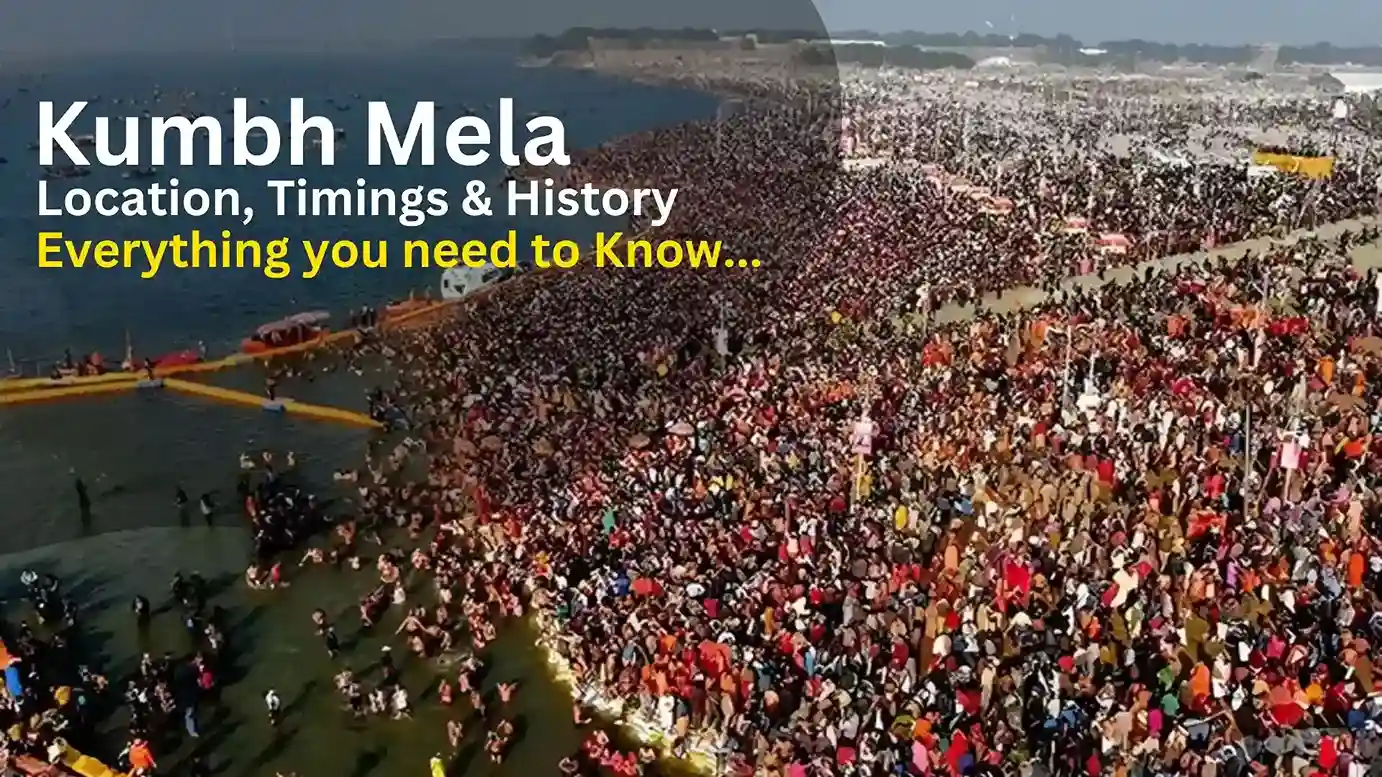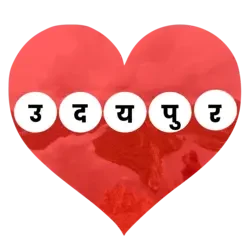Explore the rich history of Kumbh Mela, why it is famous, how to go, timings, location, must know things before visit, precautions, everything you need to know.
The Kumbh Mela is not just a festival; it is a global phenomenon that attracts millions of devotees, seekers, and travelers. Steeped in history and spirituality, this grand event is recognized as the world’s largest human gathering. Let us explore the rich heritage, activities, and travel tips for attending the Kumbh Mela, especially if you’re planning to travel from Udaipur.
The History of Kumbh Mela: A Journey Through Time
The origins of Kumbh Mela are rooted in ancient Indian mythology. According to legend, the devas (gods) and asuras (demons) churned the ocean (Samudra Manthan) to extract the nectar of immortality (Amrit). As they fought over the nectar, drops of it fell at four places: Prayagraj, Haridwar, Nashik, and Ujjain. These places became sacred, and the Kumbh Mela is held there in rotation.
The first documented Kumbh Mela was recorded during the reign of King Harshavardhana in the 7th century CE. Today, it is recognized by UNESCO as an “Intangible Cultural Heritage of Humanity.”
Why is Kumbh Mela Famous?
Kumbh Mela is renowned for its spiritual significance and unparalleled scale. Here’s why it stands out:
Sacred Rituals:
Devotees take a holy dip in the river to cleanse their sins and attain moksha (liberation).
Spiritual Discourses:
Saints, yogis, and spiritual leaders gather to share wisdom.
Cultural Exchange:
A melting pot of diverse cultures and traditions from across India and the world.
Massive Gatherings:
Millions come together, making it a unique spectacle of faith and humanity.
Kumbh Mela 2025: Dates and Venue
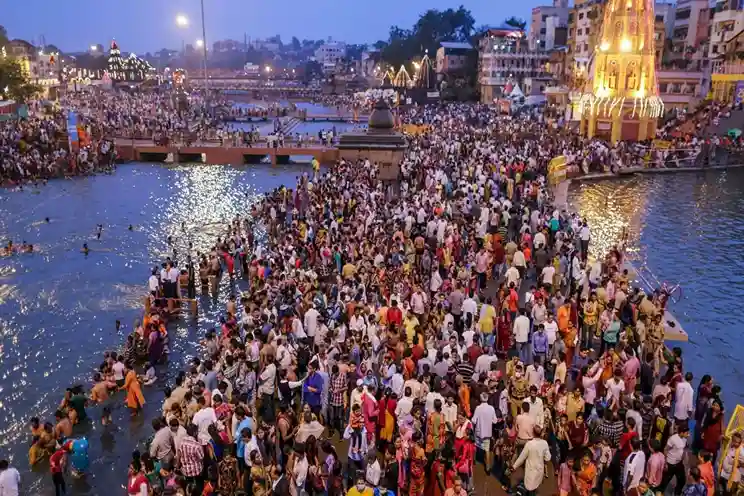
The upcoming Kumbh Mela will be held in Prayagraj (Allahabad). The tentative start date is 14th January 2025 (Makar Sankranti), with key bathing dates like Mauni Amavasya and Basant Panchami. Plan your visit accordingly to witness the major events.
Important Things to Know Before Visiting the Kumbh Mela:
| Category | Details |
|---|---|
| Event Timing | The Kumbh Mela occurs every 12 years, with Ardh Kumbh every 6 years and Maha Kumbh every 144 years. Check the exact dates and locations before planning. |
| Locations | Rotates among four cities: Prayagraj, Haridwar, Ujjain, and Nashik. Each city holds unique significance. |
| Best Time to Visit | Main bathing days (Shahi Snan) are auspicious but crowded. Arrive early or plan visits on non-peak days for a more relaxed experience. |
| Accommodation | Options range from hotels to ashrams and tented camps. Book accommodations well in advance due to high demand. |
| Clothing | Wear modest, comfortable clothing suitable for the weather and walking long distances. Carry a raincoat or umbrella if visiting during the rainy season. |
| Health Precautions | Stay hydrated, carry essential medicines, and be cautious of food and water hygiene. Use masks in crowded areas. |
| Safety Tips | Stick with your group, carry identification, and avoid carrying large sums of money. Stay alert in large crowds. |
| Transportation | Public transport and special shuttle services are available. Prepare for delays and heavy traffic. Walking might be faster in some areas. |
| Essentials to Carry | ID proof, a reusable water bottle, sunscreen, a small first-aid kit, and a power bank for your devices. |
| Cultural Sensitivity | Respect local customs and traditions. Photography of certain rituals or individuals might require permission. |
| Mobile Connectivity | Network congestion is common. Consider setting up a meeting point with companions in case of disconnection. |
| Local Cuisine | Try the vegetarian food options available, but stick to hygienic vendors to avoid foodborne illnesses. |
| Spiritual Etiquette | Participate in rituals respectfully, and avoid interrupting or disturbing devotees engaged in prayer. |
| Weather Conditions | Be prepared for extreme weather—cold mornings, hot afternoons, or unexpected rains depending on the season. |
This guide ensures a smoother and more meaningful experience at the Kumbh Mela.
What to Do at Kumbh Mela
Take a Holy Dip:
Begin your spiritual journey by bathing at the Sangam, the confluence of the Ganga, Yamuna, and Saraswati rivers.
Attend Spiritual Gatherings:
Join satsangs, kirtans, and discourses by revered saints.
Explore Akharas:
Visit camps of different Hindu sects to learn about their traditions.
Witness Cultural Events:
Enjoy folk music, dance, and art exhibitions.
Indulge in Local Cuisine:
Relish delicious prasad and regional delicacies.
How to Travel to Kumbh Mela from Udaipur
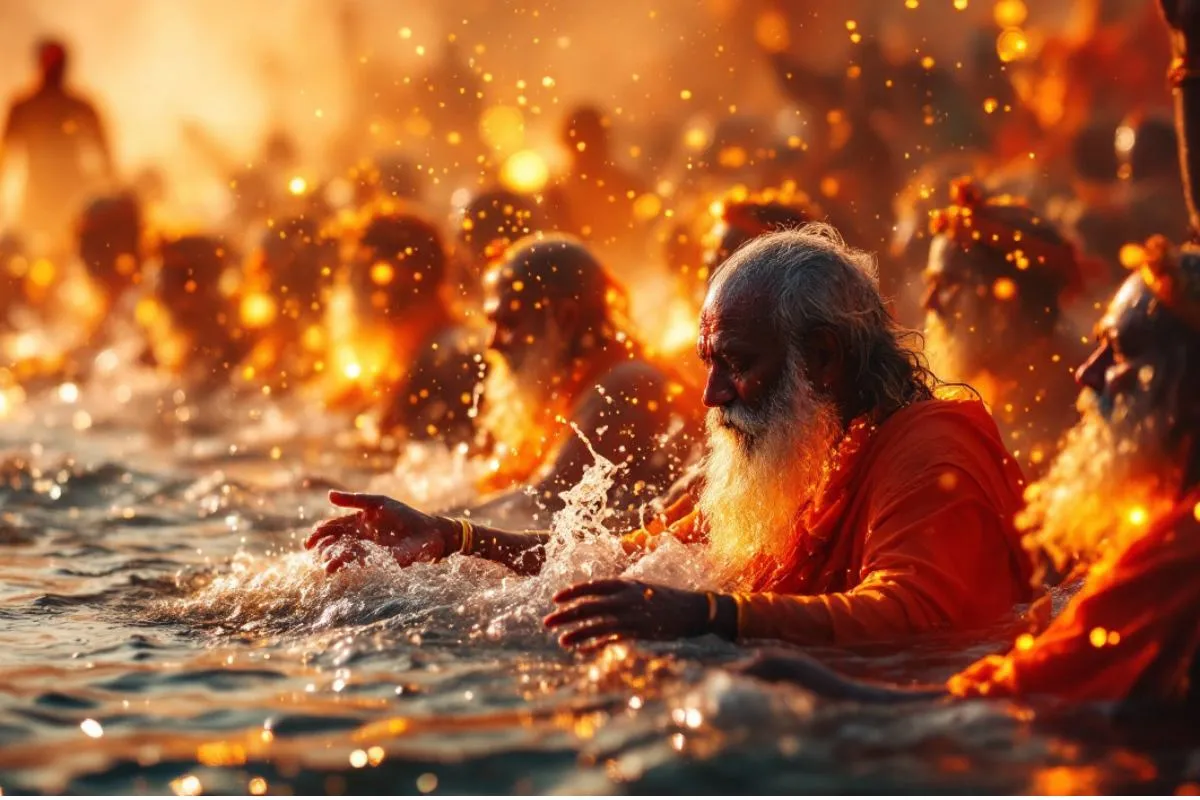
Traveling from Udaipur to Prayagraj is convenient with multiple options available:
By Train
Several trains connect Udaipur to Prayagraj. Book your tickets early to avoid last-minute hassles during the busy Mela season.
By Road
The distance between Udaipur and Prayagraj is approximately 900 km. Driving offers flexibility and scenic views.
By Taxi or Tempo Traveller
For a hassle-free journey, you can hire a taxi or tempo traveller:
- Taxi Services: Many providers offer reliable and comfortable taxi services from Udaipur to Prayagraj. This is ideal for small groups or families.
- Tempo Traveller Services: If you’re traveling with a larger group, hiring a tempo traveller is cost-effective and convenient.
By Air
Fly from Udaipur to Lucknow or Varanasi, and then take a train or taxi to Prayagraj.
Famous Quotes About Kumbh Mela
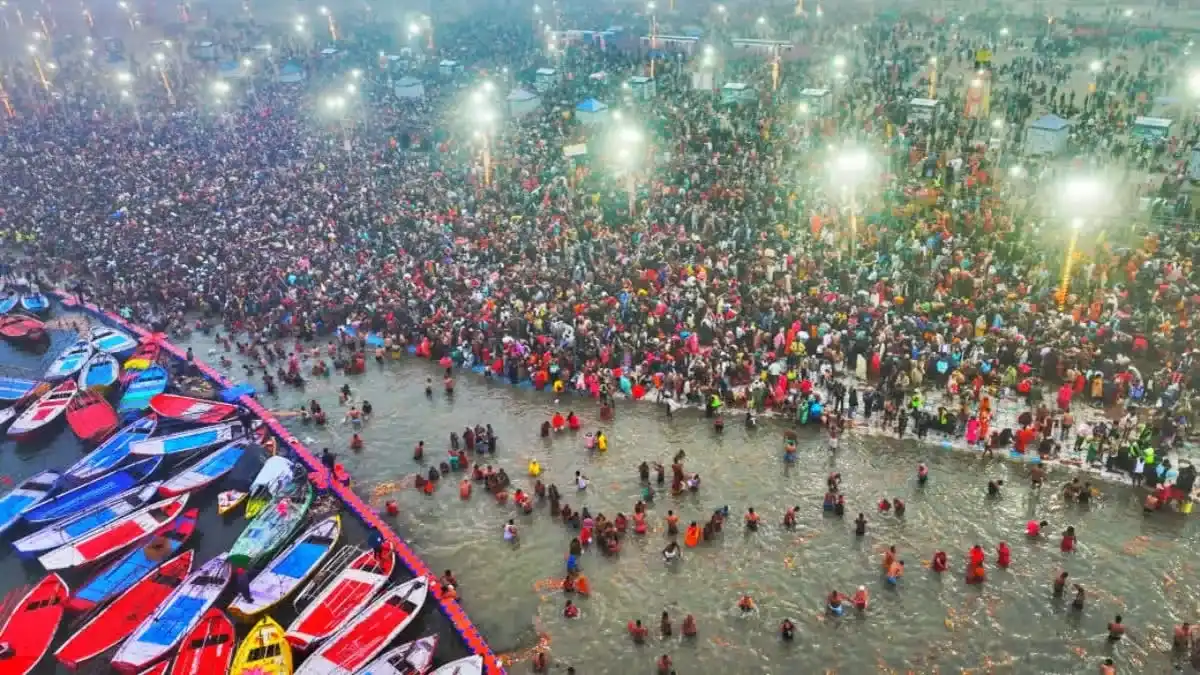
- “Kumbh Mela is not just a festival; it is a reflection of India’s spiritual soul.”
- “In the confluence of rivers, we find the confluence of humanity.”
- “Every drop at Kumbh tells a story of faith and devotion.”
FAQs About Kumbh Mela
Summary:
The Kumbh Mela is more than just a religious gathering; it’s a profound tapestry of faith, culture, and human connection. Every step along the ghats, every dip in the sacred rivers, and every interaction with a fellow pilgrim is a reminder of the shared quest for spiritual enlightenment.
Witnessing the Kumbh is a humbling experience—it brings people from diverse walks of life together, united by devotion and hope. The grandeur of the rituals, the wisdom shared by sages, and the vibrant cultural expressions serve as a testament to the richness of India’s heritage.
In a world often defined by differences, the Kumbh Mela stands as a beacon of unity, offering moments of introspection, celebration, and collective purpose. Whether you’re a seeker, an observer, or simply curious, the Kumbh promises an unforgettable journey—a reminder that faith and community transcend boundaries.
